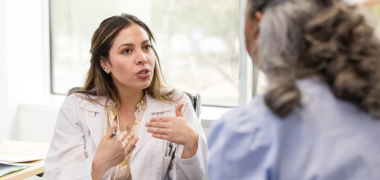
This role has a high level of AI exposure. While some human skills are required, many tasks could be automated or replaced by new technology.
Explore all careersA Clinical Researcher advances medical science by designing and managing clinical trials, collaborating with stakeholders to ensure ethical compliance.
Get qualified to work as a Clinical Researcher with a course recognised across Australia. Speak to a training provider to learn more.


Browse occupations related to Clinical Researcher



If you are looking to advance your career in the healthcare field, consider enrolling in one of the Clinical Researcher courses in Hobart. These courses provide you with in-depth knowledge and skills that are essential for succeeding in various clinical research roles. With two excellent options available for experienced learners, such as the Bachelor of Science (Biology) and the Bachelor of Biomedical Science, you can acquire the qualifications needed for a successful career in clinical research right in the heart of Tasmania.
Studying in Hobart not only equips you with practical skills but also opens doors to numerous job opportunities within the healthcare sector. This region boasts a growing demand for professionals in related fields, including Medical Laboratory Technicians, Clinical Research Coordinators, and Medical Researchers. By undertaking a Clinical Researcher course in Hobart, you can make yourself an attractive candidate for these roles, significantly enhancing your career prospects.
The courses offered are aligned with the latest developments and practices in clinical research, ensuring that you receive a relevant and comprehensive education. As part of your studies, you will delve into various aspects of healthcare and pathology, helping you understand the intricate details of the human body and disease processes. With such knowledge, you will be prepared to contribute positively to the advancement of medical science and patient care in Hobart.
Furthermore, pursuing a qualification in this field not only supports your professional growth but also allows you to make a meaningful impact on public health. The skills acquired through the Clinical Researcher courses in Hobart enable you to work on clinical trials, manage research projects, and collaborate with medical professionals, thereby playing a vital role in improving healthcare outcomes. You could find yourself collaborating with organisations focused on groundbreaking medical research and innovation.
As you consider the next steps in your educational journey, explore the diverse career paths available related to clinical research. These might include positions as a Medical Laboratory Scientist or a Pathologist. The Clinical Researcher courses in Hobart prepare you for these opportunities, providing a solid foundation for a fulfilling and successful career in the healthcare sector. Embark on this enriching path today and discover where it can lead you!